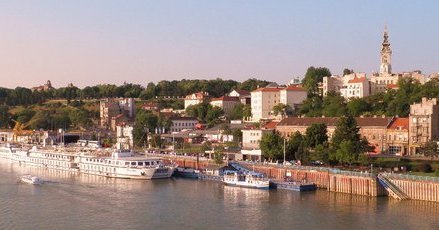On Friday, the European Council discussed Serbia’s readiness to take steps which are necessary for accession of this country to the EU, but finally it adopted no decision. Moreover, EU foreign ministers decided to postpone Serbia’s EU bid due to the current escalation of violence in Kosovo and said that Serbia would be granted European Union membership candidate status in March 2012, by which time Serbia must confirm that it was meeting all necessary requirements and making progress in the implementation of an agreement aimed at normalizing relations with Kosovo.
However, the draft statement, adopted on Friday, was not entirely critical of Serbia. It did commend the country for making “considerable progress by fulfilling political and economic criteria towards the EU membership.” Nonetheless, the EU officials stress that it is not necessary for Serbia to recognize Kosovo in order to advance its application for membership in the bloc. But the EU insists on technical talks on practical issues which would aim to ease ongoing escalation of violence and tensions between the two states. Serbian troops were driven out of Kosovo in 1999 after a NATO bombing campaign, which aimed at stopping the violent repression of the province’s ethnic Albanians, who make 90% of this country’s two million population. Many EU member states and the United States have already recognized Kosovo’s independence. In July 2011, the International Court of Justice ruled that Kosovo’s declaration of independence was in accordance with the international law.
Next Assessment to Take Place in February
The European Council President Herman Van Rompuy said at a conference in Brussels that the next assessment of whether Serbia should be granted candidate status would take place on 12 February and that a final decision by the Council could then be expected the following month. He further added that until then, the evaluation of Serbia’s achievements and its state of affairs would continue.
Van Rompuy also emphasized that the EU remained committed to the integration of the Western Balkans region, and commended Serbia for making considerable progress in its cooperation with the Hague war crimes tribunal by arresting fugitives.
EU Divided in its Decision to Grant Serbia Status or Not
The decision to postpone Serbia’s EU bid came only several days after Serbia reached a border crossing agreement with Kosovo. Serbia hoped this agreement would strengthen the country’s position, as it should have demonstrated that it was ready to engage in a dialogue and thus quiet objections to Serbia’s candidacy for the EU membership. Nonetheless, the EU has been divided over whether to grant Serbia the status of candidate for membership, particularly German Chancellor Angela Merkel who has been warning that recent clashes at the border between Serb militants and North Atlantic Treaty Organization peacekeepers, in which 50 NATO troops were injured, only proved that Serbia had not yet fulfilled necessary conditions.
Serbia Disappointed
Following the decision, Serbian president Boris Tadic could not hide his disappointment with this decision. He commented after the meeting: “Serbia cannot and will not give up on its European future,” Tadic said in Belgrade and added: “Any other decision would have long-term consequences for the citizens of Serbia. We belong to Europe.”
Furthermore, Serbia’s European Integration minister Bozidar Djelic who offered his resignation after the EU delayed a decision on whether to grant his country candidate status, called the delay “regrettable.”

Follow the comments: |
|
